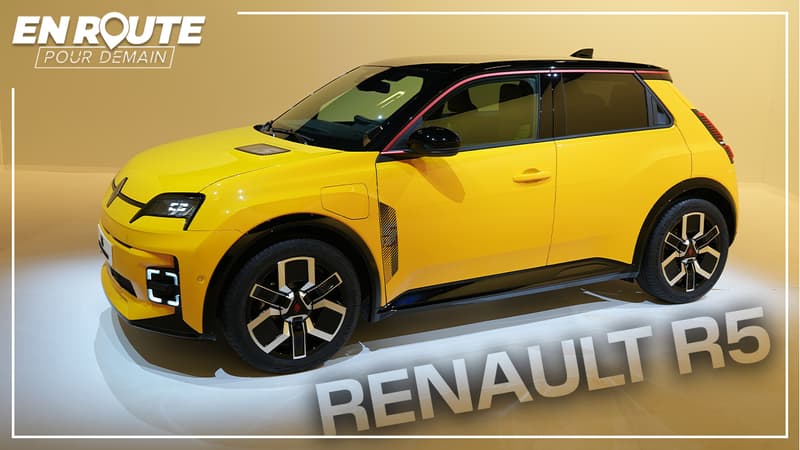Renault will equip some of its electric cars with LFP (lithium, iron, phosphate) batteries, a less expensive technology than the usual NMC batteries, the group’s electrical subsidiary, Ampere, announced on Monday.
Renault has announced the signing of a supply contract with the Hungarian plant of the Chinese company CATL. The Polish plant of the Korean company LG will also supply batteries equipped with the same technology, with a capacity of 39 gigawatt hours in five years, enough to equip around 800,000 vehicles from 2026.
20% cheaper batteries
LFP batteries are 20% cheaper than the current generation of NMC (nickel, manganese, cobalt) batteries that dominate the European market, explained François Provost, Renault Group’s purchasing director, during a press conference. Widely used by electric sector leaders BYD and Tesla, they are also more stable (with less risk of fire) and less subject to fluctuations and difficulties on raw material markets, which are difficult for cobalt for example. The greater weight of LFP batteries, however, limits their use to smaller models with less autonomy, otherwise the vehicle would become too heavy.
Renault and Alpine, the group’s premium brand, will use these batteries “as far as possible”, but rather in models with less than 60 kWh of battery, stressed Philippe Brunet, director of engineering and mechanics at Ampere. The new Scenic is equipped with batteries of up to 87 kWh for a shown range of 625 kilometers, so these batteries should equip the basic models, which could be the future Twingo, but also a version of the R5, this one that Renault has. not confirmed.
“democratize electricity”
In France, the AESC-Envision factory in Douai is expected to deliver its first batteries for the R5 in the first quarter of 2025. “These are two complementary chemistries,” stressed Josep Maria Recasens, Ampere’s COO. “We are trying to reduce the cost of the batteries.” [des véhicules]which would allow us to lower the price, access a part of the market that is difficult to reach today” and “democratize” electricity, he explained.
Ampere management had indicated that it intended to reduce the cost of manufacturing each car by 40% by 2027. “We’ve done almost half of that,” Recasens said. The batteries produced by LG also benefit from “cell-to-pack” technology, which eliminates battery modules and integrates the cells directly into the casing, saving space and installing more cells, for greater autonomy.
Source: BFM TV


